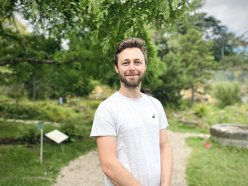Abstract
Freshwater fish faunas have evolved in isolation on different continents over millions of years, creating distinct biogeographical regions with specific compositions. Freshwater fishes are the only vertebrate group for which regions are composed almost exclusively of endemic species, i.e. species that naturally occur only in a single region. This extreme endemism underlines both the strong constraints on dispersal for freshwater fish and their great vulnerability to upheaval caused by human activities. Recently, humans have altered the Earth's biogeographical history, multiplying the pathways for the introduction of non-native species and promoting local extinction.
In this seminar, we'll examine these upheavals and their consequences with a journey through time to the past, from the present, and a peek into the future. We'll go back 250 million years to understand how plate tectonics shaped natural biogeographical regions. Next, we'll look at the reasons why human societies are massively modifying the natural distribution of fish, leading to the phenomenon of biological invasions and their dramatic consequences. Finally, we'll look at how these introductions have redrawn the geography of freshwater fish biodiversity. We'll then take a moment to reflect on the very long-term consequences of our actions over the space of a few decades.

